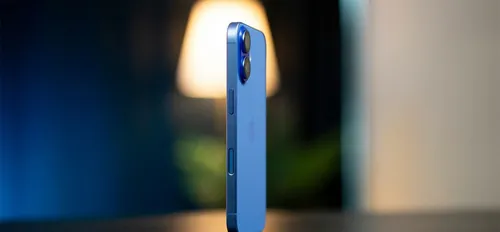Le bannissement de l'iPhone 16 pourrait s'achever d'ici 1 à 2 semaines, selon l'Indonésie, avec une déclaration inhabituelle.

The Indonesian government has declared that it expects its iPhone 16 banner to be released "within one or two weeks," but has not explained the basis for this decision.
The country's investment minister made a rather poorly expressed and sometimes contradictory comment, suggesting an agreement was close...
History Until Now
Governments of populous countries are becoming increasingly cunning in their search for an exchange for Apple's access to their markets, demanding incoming investment as compensation.
Indonesia began by requesting a modest $109 million investment from Apple in a development academy here, along with an additional $10 million for production. However, when this target was not met exactly, the government escalated matters significantly. It banned the sale of the iPhone 16 and demanded much more substantial investment.
Apple first offered $100 million, but the government said that was insufficient. It then requested a manufacturing investment of one billion dollars in the country. We recently learned that Apple had agreed to this, and it has since been revealed that this would take the form of large-scale production of AirTags.
However, the Indonesian government strangely rejected this offer, saying only iPhone component manufacturing would be considered.
The suspension of the iPhone 16 could last one or two weeks.
"I am convinced it will be resolved very soon," declared Roeslani in an interview with Bloomberg Television in Davos on Tuesday. "I hope this problem can be resolved within one or two weeks."
However, no explanation has been provided for this optimism. Instead, Roeslani made a very vague statement:
"They may calculate it differently," said Roeslani regarding the requirement for local content. "Now they have found a solution to that, so I hope they will accept deviations so we can sell the iPhone 16 in Indonesia."
Now that they have found a solution", this seems to indicate that Apple has made a fresh offer, while "we hope they will accept deviations".
It is clear that the question will be resolved, as both parties need it to happen, but we currently lack knowledge of how this will unfold.
Photo by Amanz on Unsplas
Catégories
Derniers articles
- <p>Examen du clavier mécanique Satechi Keyboard SM3 : silencieux et parfait pour la productivité</p>
- This old phone became a fire hazard right before my eyes.
- 10 façons dont l’invitation d’Apple diffère du Calendrier Apple
- <p>Apple au travail : 2025 sera-t-il l’année où Apple lancera un concurrent de Google Workspace ?</p>
- Apple improbable d'organiser un événement spécial pour annoncer l'iPhone SE 4.
- Indices et solutions du jeu « Connections » du NYT pour le 8 février (#608)" Let me know if you'd like me to translate this into another language! 😊
- Support for Ubuntu 20.04 LTS is ending.
- Avez-vous une liste de lecture ? Laissez l'IA vous lire.
- Voici mon lecteur Blu-ray du Graal.
- <p>De nouveaux produits Apple seront lancés la semaine prochaine : voici ce qui arrive.</p>
Derniers tags
- rétroéclairage
- compatible
- silencieux
- recyclage
- danger
- gonflées
- Batteries lithium-ion
- Workspace
- Communiqué
- Annonce



